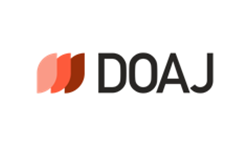ПОЛІТИКО-ЕКОНОМІЧНА ПАРАДИГМА РОЗШИРЕННЯ ЄС: СПРАВА УКРАЇНИ
Ключові слова:
Європейський Союз, Копенгагенські критерії, реформа, конкурентоспроможність, торговельні потоки, безпека, членство, імпорт, експорт, ризики.Анотація
Копенгагенські критерії визначають вимоги до членства України в Європейському Союзі: демократія, гарантована стабільними інститутами, функціонуюча ринкова економіка та здатність реалізовувати політичні, економічні та монетарні цілі Союзу. Незважаючи на прогрес, досягнутий у важливих сферах, Україна повинна зробити подальші кроки щодо реформ, спрямовані на боротьбу зі зловживанням владою, недостатньою прозорістю та трудовою міграцією. Вступ до Європейського Союзу поставить перед Україною завдання реформувати погані практики та імплементувати європейське законодавство в національне. Угоду про асоціацію та поглиблену і всеосяжну зону вільної торгівлі, яка відповідає економічним, судовим та фінансовим принципам, потрібно використати як модель для поступового підходу до політики та законодавства ЄС. Майбутній успіх України залежить від проведених реформ, здатності викорінити корупцію, утримати людей в країні, залучити іноземні інвестиції та відновити країну, зберігаючи при цьому постійну військову підтримку для захисту територіальної цілісності української держави.
Класифікація за JEL: F15, F02, F22, F53.
Посилання
Anghel, V., & Jones, E. (2022). Failing forward in Eastern Enlargement: problem solving through problem making. Journal of European Public Policy, 29(7), 1092–1111.
Basel Institute on Governance (2023). Transparency International Ukraine. Enhancing Ukraine’s anti-corruption measures to safeguard the recovery. https://baselgovernance.org/sites/default/files/2023-06/230620-URC2023.pdf
Bélanger, Marie-Eve (2022). What prospect is there of Ukraine joining the EU? https://blogs.lse.ac.uk/europpblog/2022/03/16/what-prospect-is-there-ofukraine-joining-the-eu/
Bloomberg (2023). Ukraine Rating Downgraded by S&P on Debt Restructuring Plan, by Sydney Maki. https://www.bloomberg.com/news/articles/2023-04- 06/ukraine-rating-downgraded-by-s-p-on-debt-restructuring-plan#xj4y7vzkg
Buras, P., Dumoulin, M., Gressel, G. and Shapiro, J. (2022). European Council on Foreign Relations. Survive and thrive: A European plan to support Ukraine in the long war against Russia. https://ecfr.eu/publication/survive-andthrive-a-european-plan-to-support-ukraine-in-the-long-war-against-russia/
Centre for Economic Strategy (2017). Ukrainian Economic Migration. https://ces.org.ua/wp-content/uploads/2019/06/migration_pres.pdf
Corruption Perception Index (2022). Key indicators. Ukraine. https://cpi.tiukraine.org/en/
Dabrowski, M. (2019). Ukraine’s Path to Economic Integration with the EU. European Policy Review, 5(1), 25–38.
Disney, R. & Szyszczak, E. (2022). Ukraine’s accession to the European Union: what difference would it make? https://www.economicsobservatory.com/ ukraines-accession-to-the-european-union-what-difference-would-it-make
Doing Business (2020). https://documents1.worldbank.org/curated/fr/688761571 934946384/pdf/Doing-Business-2020-Comparing-Business-Regulation-in- 190-Economies.pdf
Epstein, R. A., & Jacoby, W. (2014). Eastern enlargement ten years on: Transcending the East–West divide?. JCMS: Journal of Common Market Studies, 52(1), 1–16.
European Commission (2023). European Neighbourhood Policy and Enlargement Negotiations (DG NEAR). Conditions for membership. https://neighbourhoodenlargement.ec.europa.eu/enlargement-policy/conditions-membership_en
European Council (2022). EU enlargement policy. Ukraine. https://www.consilium.europa.eu/en/policies/enlargement/ukraine/.
European Union (2023). Joining the EU. https://european-union.europa.eu/principlescountries-history/joining-eu_en#:~:text=A%20country%20wishing%20to%20 join,to%20meet%20the%20Copenhagen%20criteria.
Eurostat (2022). How many Ukrainians hold an EU residence permit? https://ec.europa.eu/eurostat/web/products-eurostat-news/-/ddn-20220407-2
Freedom House (2023). Countries and territories. https://freedomhouse.org/ countries/freedom-world/scores
Frey, B. S., Eichenberger, R. (1995) FOCJ: Competitive governments for Europe. International Review of Law and Economics. Vol. 16, Issue 3, 315–327. DOI:10.1016/0144-8188(96)00019-1.
Hooghe, L., Marks G. (2016) Community, Scale, and Regional Governance: A Postfunctionalist Theory of Governance, Volume II. Oxford University Press. 212 p.
International Labour Organization (2012). https://www.ilo.org/wcmsp5/groups/public/ --- europe/---ro-geneva/---sro-budapest/documents/publication/wcms_247459.pdf
Kononczuk, W. (2022). No Stable EU Without a New Eastern Enlargement. Stockholm Centre for Eastern European Studies, Guest Commentary, (15).
Krysovatyy, A., Lishchynskyy, I. (2023) Current and future challenges of European integration. European and global regional integration: a textbook / edited by A. Krysovatyy and M. Lyzun. Ternopil: Yu.V. Osadtsa. 295 p.
Kuzio, T. (2017). Ukraine-Crimea-Russia: Triangle of Conflict. Journal of PostSoviet Studies, 3(2), 112–133.
Leuffen, D., Rittberger B., Schimmelfennig F. (2012) Differentiated Integration: Explaining Variation in the European Union. 2012th edition. Houndsmill, Basingstoke, Hampshire : Palgrave MacMillan.
Lishchynskyy, I. O., & Lyzun, M. V. (2018). Social Efficiency of European Economic and Monetary Union. Scientific Bulletin of Polissia, 13.
Ritchie, J., Lewis, J., Nicholls, C.M. and Ormston, R., Eds. (2013) Qualitative Research Practice: A Guide for Social Science Students and Researchers. Sage, Thousand Oaks, CA.
Savelyev, Y., Lyzun, M., Kuryliak, V., & Lishchynskyy, I. (2021). Economic integration of the Visegrad Four and Ukraine in the context of historical narratives and global challenges. European Journal of Sustainable Development, 10(2), 44–44.
Schimmelfennig, F., Winzen, T. (2020) Ever Looser Union?: Differentiated European Integration. Oxford University Press, 2020. 247 p.
Schmitter, P., Marks, G. (1996) Imagining the Future of the Euro-Polity with the Help of New Concepts. Governance in the European Union. SAGE. ISBN 978-0-7619-5135-3.
Stubb, A. C.-G. (1996). A Categorization of Differentiated Integration. JCMS: Journal of Common Market Studies. Vol. 34, Issue 2, 283–295. DOI:10.1111/j.1468-5965.1996.tb00573.x.
United Nations (2020). International Migrant Stock 2020. https://www.un.org/ development/desa/pd/content/international-migrant-stock
Van Elsuwege, P. & Van der Loo, G. (2022). The EU-Ukraine Association Agreement as a Stepping-stone towards EU Membership? https://eulawlive.com/ op-ed-the-eu-ukraine-association-agreement-as-a-stepping-stone-towardseu-membership-by-peter-van-elsuwege-and-guillaume-van-der-loo/
Wolczuk, K. (2016). Ukraine and Europe: A Difficult Neighbourhood. European Politics and Society, 17(1), 66–83.
World Economic Forum (2023). Ukraine wants to join the EU. How does the
process work? https://www.weforum.org/agenda/2022/03/eu-europeanunion-membership-ukraine/
Отримано: 10 липня 2024 р.
Рецензовано: 16 серпня 2024 р.
Рекомендовано до друку: 5 вересня 2024 р.
##submission.downloads##
Опубліковано
Як цитувати
Номер
Розділ
Ліцензія
Автори, які публікуються у цьому журналі, погоджуються з наступними умовами:
- Автори залишають за собою право на авторство своєї роботи та передають журналу право першої публікації цієї роботи на умовах ліцензії Creative Commons Attribution License, котра дозволяє іншим особам вільно розповсюджувати опубліковану роботу з обов'язковим посиланням на авторів оригінальної роботи та першу публікацію роботи у цьому журналі.
- Автори мають право укладати самостійні додаткові угоди щодо неексклюзивного розповсюдження роботи у тому вигляді, в якому вона була опублікована цим журналом (наприклад, розміщувати роботу в електронному сховищі установи або публікувати у складі монографії), за умови збереження посилання на першу публікацію роботи у цьому журналі.
- Політика журналу дозволяє і заохочує розміщення авторами в мережі Інтернет (наприклад, у сховищах установ або на особистих веб-сайтах) рукопису роботи, як до подання цього рукопису до редакції, так і під час його редакційного опрацювання, оскільки це сприяє виникненню продуктивної наукової дискусії та позитивно позначається на оперативності та динаміці цитування опублікованої роботи (див. The Effect of Open Access).








